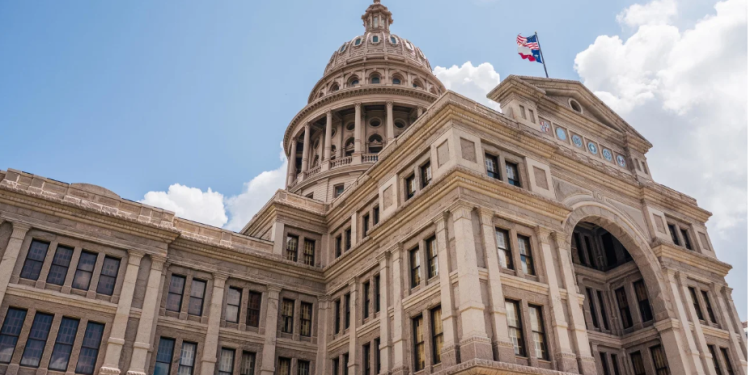On Thursday, the Texas Senate passed a bill mandating that each public school classroom display a copy of the Ten Commandments, a move that drew criticism from civil liberty advocates who argued that legislators should not dictate what religious materials students are exposed to.
The legislation, which passed the state Senate by a margin of 17 to 12, will now be considered by the state House.
Republican state senator Phil King authored Senate Bill 1515, which mandates that the Ten Commandments be displayed in each classroom in a “conspicuous place” and in a “size and typeface that is legible to a person with average vision from anywhere in the classroom.”
King has previously stated that the bill will help restore religious freedoms “that were lost” and that it “reminds students all across Texas of the importance of a fundamental foundation” of America.
The bill states, “This Act shall take effect beginning with the 2023-2024 school year.” “This Act goes into effect immediately if it obtains the approval of two-thirds of the elected members of each house… If this Act fails to receive the necessary votes for immediate effect, it will become effective on September 1, 2023.”
Also on Thursday, the Senate passed another bill relating to religion, mandating that schools provide daily time for students and staff to pray and peruse the Bible. Similarly, Senate Bill 1396 passed with a 17-12 vote.
Dan Patrick, the lieutenant governor of Texas, issued the following statement following the passage of the two bills: “Allowing the Ten Commandments and prayer back into our public schools is one step we can take to ensure that all Texans have the right to freely express their deeply held religious beliefs.”
“Bringing the Ten Commandments and prayer back into our public schools will enable our students to become better Texans,” he continued.
The American Civil Liberties Union of Texas issued the following statement: “Parents, not the (Texas legislature), should decide what religious materials their child should study.”
“Yet, some Texas legislators want to compel public schools to display the Ten Commandments or schedule Bible reading periods.”
CNN previously reported that a new Texas state law mandated the display of “In God We Trust” posters in public schools, so long as the copies were donated or purchased with private funds.
State Senator Bryan Hughes, a co-author of the law and a Republican, stated at the time that the phrase asserted “our collective trust in a sovereign God.”














































